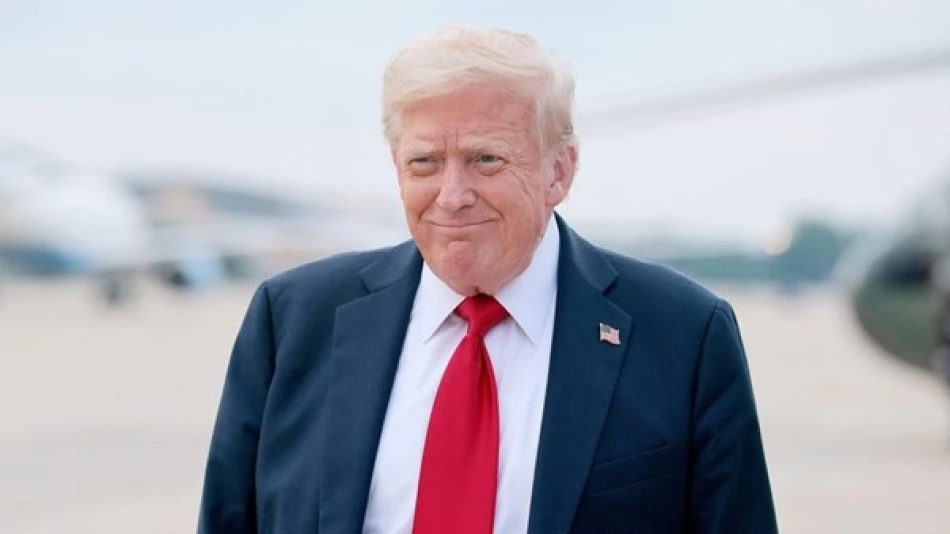
Trump Brokers Permanent Ceasefire between Armenia and Azerbaijan
Trump Brokers Historic Peace Deal Between Armenia and Azerbaijan After 35 Years of Conflict
In a dramatic diplomatic breakthrough, President Donald Trump announced Friday that Armenia and Azerbaijan have committed to ending their decades-long conflict, with both nations signing a joint declaration at the White House that could reshape the geopolitical landscape of the Caucasus region. The agreement marks the first major step toward resolving one of the world's most enduring territorial disputes, potentially unlocking significant economic opportunities in the energy-rich region.
A Conflict Three Decades in the Making
The Armenia-Azerbaijan conflict has its roots in the disputed territory of Nagorno-Karabakh, which has been a source of tension since the late 1980s. The territorial dispute escalated into full-scale war in the early 1990s, resulting in tens of thousands of casualties and displacing over a million people. Despite multiple ceasefire agreements over the years, sporadic fighting has continued, with the most recent major escalation occurring in 2020.
"They have been fighting for 35 years and now they are friends, and they will be friends for a long time," Trump declared during the White House ceremony, emphasizing the historic nature of the agreement.
Key Provisions of the Peace Framework
Comprehensive Commitment to Non-Violence
The joint declaration commits both nations to "stop all fighting forever," according to Trump's remarks. This represents a significant escalation from previous temporary ceasefire agreements that have repeatedly broken down over the years.
Economic and Diplomatic Normalization
Beyond ending hostilities, the agreement establishes a framework for opening trade, travel, and diplomatic relations between the two countries. This economic integration could prove transformative for the region, particularly given Azerbaijan's significant oil and gas reserves and Armenia's strategic position as a transit corridor.
The commitment to "respect each other's sovereignty and territorial integrity" suggests both sides are prepared to accept current borders, though the specific status of disputed territories remains to be clarified in future negotiations.
Regional and Global Implications
Caucasus Stability and Energy Security
Azerbaijani President Ilham Aliyev characterized the agreement as establishing "peace in the Caucasus," highlighting the broader regional significance. A stable Armenia-Azerbaijan relationship could enhance energy security for Europe, as Azerbaijan serves as a crucial alternative to Russian energy supplies through pipelines that traverse the region.
Geopolitical Realignment
The peace deal could shift regional power dynamics, particularly affecting Russia's traditional influence in the Caucasus. Moscow has historically played a mediating role through the OSCE Minsk Group, but this US-brokered agreement positions Washington as a key stakeholder in regional stability.
Market and Investment Opportunities
The normalization of relations opens significant economic possibilities. Azerbaijan's energy sector could benefit from reduced regional tensions and improved transport routes. Armenia, historically isolated due to closed borders with Azerbaijan and Turkey, could gain access to new markets and transit opportunities.
Infrastructure development, particularly in transportation and energy, represents a major investment opportunity as both countries work to establish the trade and travel connections outlined in the agreement.
Challenges Ahead
While both leaders praised Trump's mediation efforts and suggested he deserves the Nobel Peace Prize, the real test lies in implementation. Armenian Prime Minister Nikol Pashinyan acknowledged this is "an important milestone" but emphasized they are "laying the foundations for a better story than we had in the past."
The agreement represents what Aliyev described as "a preliminary step toward a peace agreement," indicating that significant work remains to resolve specific territorial and administrative issues that have fueled the conflict for decades.
Success will depend on both nations finding "the courage and responsibility to reconcile," as Aliyev noted, and translating this high-level political commitment into concrete actions that benefit their populations after generations of conflict.
Most Viewed News

 Layla Al Mansoori
Layla Al Mansoori






